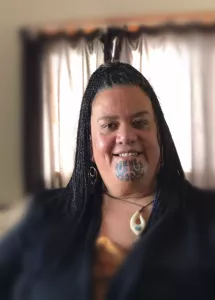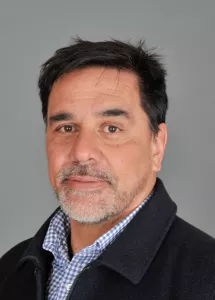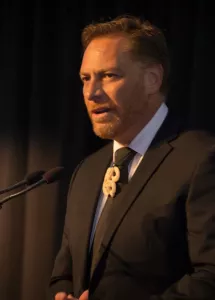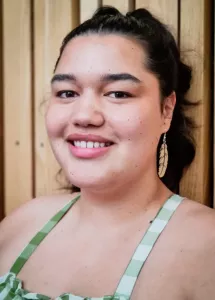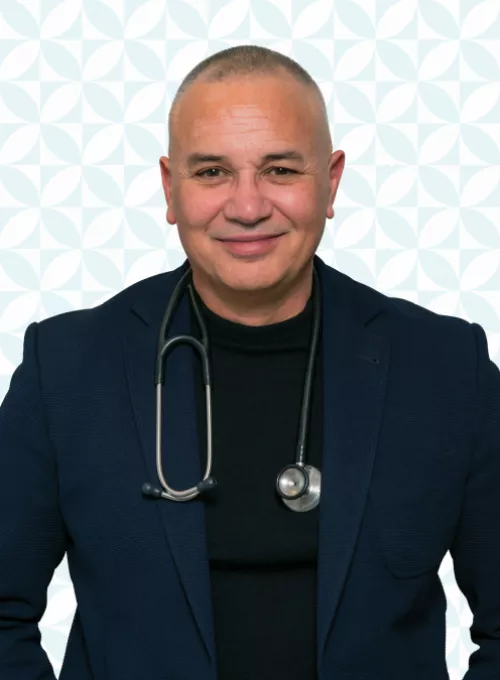
Dr Glenn Doherty's remarkable journey began during the final years of his medical training, where he balanced the demands of being a solo father on the DPB, without a car and with no close family support and living in Wellington with his son. These early challenges laid the foundation for a 42-year career defined by resilience, innovation, and a relentless commitment to improving healthcare for underserved communities.
Glenn holds an MBChB from the University of Otago and was awarded a Fellowship of the Royal New Zealand College of General Practitioners (RNZCGP). Throughout his extensive career, he has held leadership positions across clinical medicine, health management, policy development, research, and primary care governance. His focus on improving health outcomes for Māori and Pacific communities has been central to his work in New Zealand and Tonga, where he has worked for approximately 20 years.
Leadership in Māori and Pacific Healthcare
Glenn has dedicated much of his career to Māori communities. As a General Practitioner at Ngāti Porou Hauora Te Puia Springs and as a health manager at Te Rūnanga o Tūranganui a Kiwa, he was pivotal in establishing an iwi-based primary care health company. His work also included a partnership with the Māori Women’s Welfare League on a pilot programme to improve Māori immunisation rates.
In the 1980s, Glenn collaborated with Dame Pauline Kingi and the New Zealand Police to research solvent abuse in South Auckland under the mentorship of Dame Mira Szászy. He considers Professor Colin Mantell and Sir Mason Durie to be significant mentors, with Sir Mason Durie being the grandfather of his son, Katene Durie-Doherty.
Glenn’s contributions extended to his role as Medical Director at Te Whānau O Waipareira Trust, where he was involved in developing Whānau Ora and establishing a new medical centre in Henderson. Today, as CEO, Medical Director, and Board Secretary of the Tongan Health Society (THS), Glenn leads four medical centres across Auckland that serve a diverse patient base, including many Māori whānau.
A Holistic Model of Care
Glenn has developed a community-focused, holistic model of care at the Tongan Health Society. This model addresses the socio-economic determinants of health by integrating services across multiple sectors, including housing, immigration, education, mental health, parenting, social work, and lifestyle change. The society offers a wide range of programmes, including school-based clinics, elderly care, diabetes management, mental health services, youth work readiness, and Whānau Ora family resilience initiatives.
A key feature of THS’s services is its Outreach Programme, which operates mobile clinics throughout the city that provide mental health services, dental care, immunisations, health screenings, and health promotion. This programme was initially developed in Tonga to meet the needs of non-New Zealand residents seeking healthcare in New Zealand.
Research and Innovation
In 2022, Glenn led the establishment of the Langimālie Research Centre which aims to promote research capabilities across a wide range of research domains in pacific health and well-being.
Glenn’s leadership has been widely recognised, and under his direction, the Tongan Health Society has achieved significant accolades. In 2020, Tongan Health was awarded General Practice of the Year at the New Zealand Primary Healthcare Awards and a Whānau Ora Auckland Region Award in 2023 for its outstanding contribution to Pacific families and Whānau Ora. Also, in 2023, Tongan Health received the National Hauora Coalition Quality & Service Excellence Award for its continued commitment to healthcare excellence.
Honours and Recognitions
Glenn has been acknowledged for his outstanding contributions to Māori and Pacific health with numerous accolades, including:
- Community Service Medal (2015) from the RNZCGP.
- Te Tohu Urupare KOWHEORI-19, awarded by Prime Minister Chris Hipkins for exceptional contributions to Tongan health during the COVID-19 pandemic.
A lifetime member of Te Ora Māori Medical Practitioners Association, Glenn is also a senior honorary lecturer at the University of Auckland and a clinical educator with RNZCGP. His peers describe him as a strategic and visionary leader, deeply committed to resource mobilisation and the development of sustainable healthcare programmes that create lasting positive impacts on the lives of the people he serves.
A Visionary Leader
Glenn’s leadership is characterised by his ability to balance empathy with evidence-based decision-making. He actively engages with other healthcare providers, community organisations, and churches to deliver holistic services that meet the unique needs of Pacific and Māori communities. His dedication to innovation and continuous improvement has earned him a reputation as a transformative leader in New Zealand's healthcare sector.
Guided by the whakataukī "Ehara taku toa i te toa takitahi, engari he toa takitini" – My success is not mine alone, but the strength of many – Glenn’s work exemplifies the power of collaboration and community-focused care.
Updated October 2024
